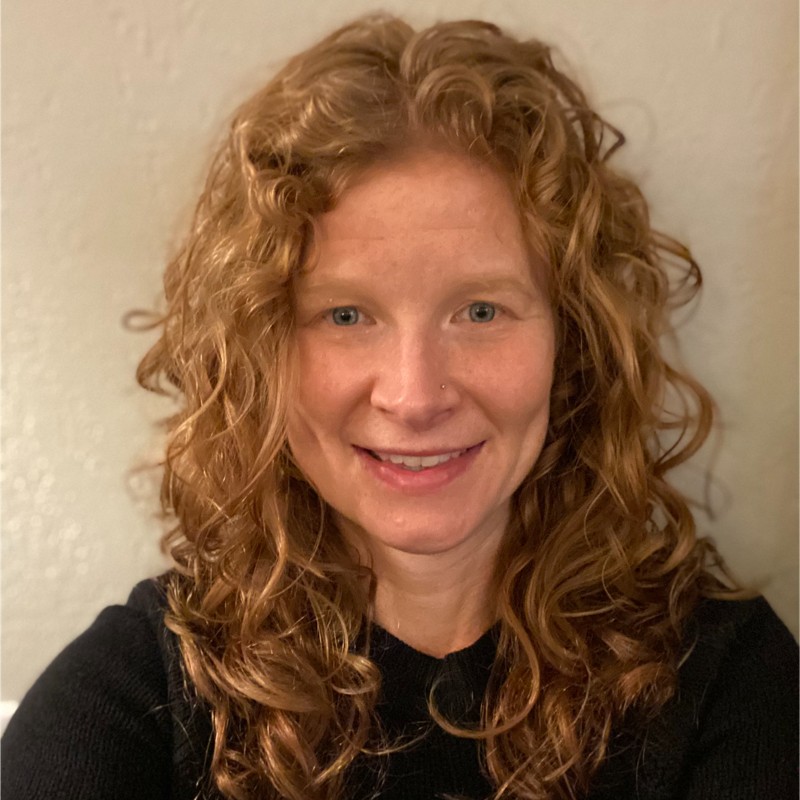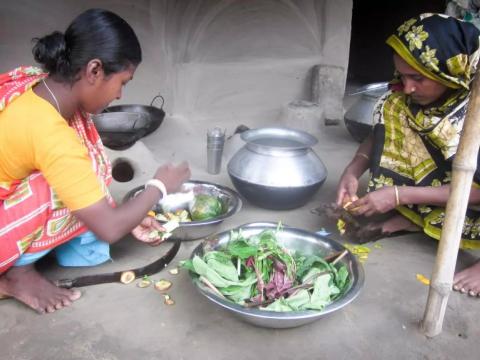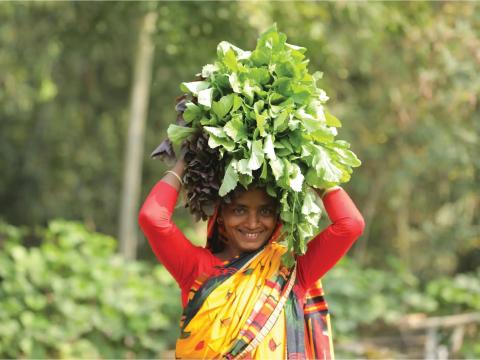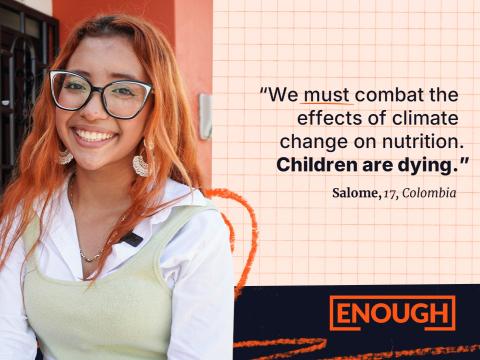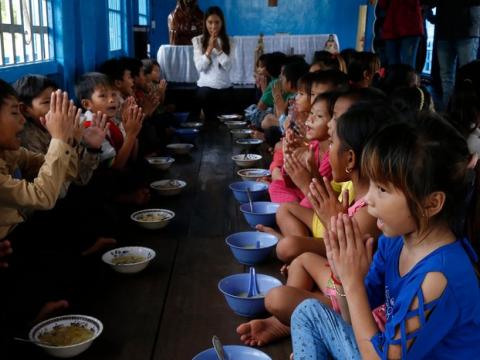
Nutrition: Faith communities are hungry to be heard and included
In the week that Paris hosts the Nutrition for Growth Summit, Andrea Kaufmann reflects on the unique and essential role that local faith communities play in addressing hunger and malnutrition.
March 26, 2025
Meals hosted by faith communities are at the centre of many of my own childhood memories. My adolescent years in Cambodia were marked by inhaling Khmer curry and noodles sitting in shade after a long church service held in the open air. I vividly recall church basements filled with casserole dishes after a memorial service. My young adult life was full of folding tables populated by dishes from all around the world. I—as I expect is also true of many of you—associate faith communities with an abundance of food.
Hospitality, shared meals and festivals of abundance have parallels across faith traditions and geographies. They give us an opportunity to deepen friendships, to celebrate God’s provision and culinary creativity, and to model the many biblical reminders to practice hospitality, share food with the hungry and break bread together.
So much more than soup kitchens…
We know that faith communities play an important and essential role in food security that extends far beyond the post-service shared meal. In a world that is many believe is becoming increasingly religious, faith communities are trusted actors with long term presence in the community. They can identify and access the most vulnerable in the broader community. Within their membership, they have skills, abilities, relationships and experiences that can deliver innovative solutions.
Churches and faith communities can, and often do, make strong connections at multiple levels (local, national, global) and across stakeholder groups, supporting more comprehensive and systemic solutions. This has included a dynamic response to the global AIDS crisis—with churches taking action in direct programming and global advocacy—as well as engagement in such initiatives as Food System Summit Dialogues, and faith-driven Environment Stewardship efforts like Faith for Earth that emphasize positive outcomes for both people and planet.
Hearing the voices of the faithful
A recent series of 20 faith community-led nutrition dialogues allowed World Vision, 4SD Foundation and other mobilising partners to listen in on perspectives on faith communities on their perceived roles and recommendations to address food security. 243 participants joined in structured dialogues in Indonesia, Kenya, Lesotho, Malawi, Myanmar, Somalia, South Sudan, Switzerland, and Zambia.
While the faith community-led dialogues largely reflected recommendations found in the global report, they also emphasised the importance of including existing faith-based organisations, communities and approaches into an integrated set of solutions. They also spotlighted the need for faith communities to have access to emerging supports and capacity. These faith community-led dialogues also revealed some interesting and faith specific perspectives and nuances:
First, faith communities identified spiritual and faith-related assets and barriers. Food taboos which limit dietary diversity for pregnant women and children can often be rooted or connected to spiritual practices. In Zambia, for example, faith communities shared that perspectives on child marriage are often influenced by faith perspectives and can exacerbate malnutrition in young mothers and their children. Some faith groups also discourage medical treatment, including for malnutrition, worsening cases among children. Other participants identified the positive role faith leaders can play in promoting a faith-based foundation for effective and sustainable environmental stewardship.
Second, in the faith-community dialogues, participants spent time considering their own responsibility and making commitments about action they could/should take. This included integrating nutrition education into their ongoing faith-based teaching and community events, leveraging faith-based radio stations to spread nutrition awareness and promoting responsible food consumption and reducing food waste during religious and cultural events, including weddings and funerals.
Participants highlighted the ways that faith communities were already promoting economic empowerment and sustainable agriculture to the many smallholder farmers and small business entrepreneurs in their congregations—with a push to align more resources and capacity-building supports to existing programming.
In Malawi and South Sudan, participants recommended faith actors promote climate-smart solutions, invest in community gardens and advocate to their members for a range of tree-planting programmes.
Interestingly, many areas highlighted in the faith-community led dialogues also aligned directly with the Global Alliance to End Hunger and Poverty’s 2030 sprints—evidence-based solutions with proven track records to address hunger and poverty. Besides recommendations related to smallholder and family farming, socio-economic inclusion, mothers and early childhood, school feeding programmes, school production zones and faith-based feeding centres were also highlighted in Lesotho, South Sudan, Somalia and Zambia.
Bringing more voices to decision-makers
At the critical pledging moment that the Nutrition for Growth Summit in Parish represents, we encourage decision-makers to consider the strategic and transformational partnerships that faith communities offer in the fight against hunger and malnutrition. Over the next 6 months, we will continue to scale up faith community-led nutrition dialogues. Through these, we will strengthen our understanding and knowledge of faith community unique perspectives, contributions and recommendations.
We hope to see partnerships between governments, multilaterals and other civil society organisations to find innovative solutions. Will you join us?
The Nutrition dialogues and Children’s workshops initiative included 346 nutrition dialogues and children’s workshops with more than 10,000 people in 54 countries in 2024 designed to ensure policy and decision makers heard the voices of communities most impacted by hunger and malnutrition. To learn more visit click here
Andrea Kaufmann is World Vision’s Director of External Engagement for Faith and Development. She has worked in international development, humanitarian and advocacy work for two decades—serving in programme management, technical leadership, communications and relationship-building roles. She is passionate about the evidence-based role of faith and faith actors in development and humanitarian work and works to build cross-sector relationships to drive positive impact for children. Contact via LinkedIn
